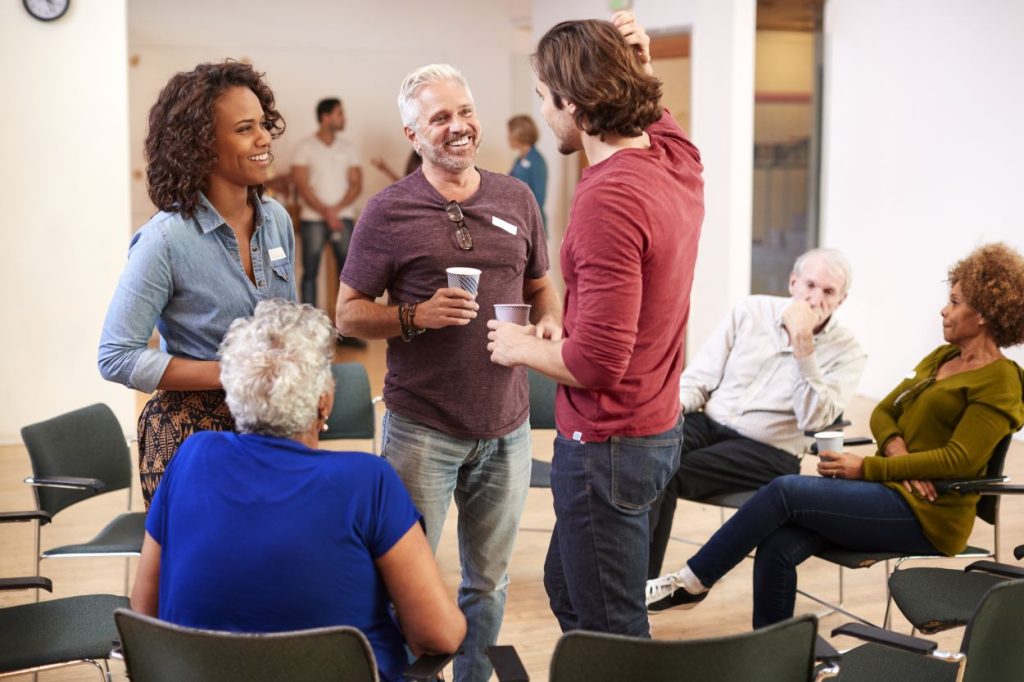SNOHOMISH COUNTY—The Snohomish County Rural Opioid Response Project Consortium is hosting community conversations June 26 and 27 in Darrington and Monroe about substance use disorder and stigma.

Free community events in Darrington and Monroe in the last week of June will bring people together to talk. Topics include stigma in our communities, how we support people with substance use disorder and their families, and how to work together on reducing stigma. These interactive discussions will be facilitated by Tedra Cobb, a consultant with the University of Rochester Medicine Recovery Center of Excellence.
Registration for this free event is encouraged by not required. People can register online at https://bit.ly/StigmaConvo.
“We all have a part to play in addressing stigma, building community, and treating each other with kindness and compassion,” said Snohomish County Executive Dave Somers. “I encourage rural communities to attend these upcoming conversations to help us create a future where people experiencing opioid use disorder can access recovery, rebuild their life, and thrive.”
There will be two community conversations that are free and open to the public. Anyone who attends at least one of the community conversations may also attend a “train the trainer” workshop in Everett on June 27. During that workshop, participants will learn how to lead ongoing discussions about stigma in their communities.
“This is important to help build empathy and normalize this as a medical condition for which individuals need treatment and care,” said Dr. James Lewis, Health Officer for the Snohomish County Health Department. “When we center the medical aspect of the disorder and build empathy, it will make it easier for people suffering from addiction to seek help when they are ready rather than hiding out of shame due to stigma.”
Community Conversations
- Wednesday, June 26, from 3 to 5:30 p.m. at the Darrington Library, 1005 Cascade St., Darrington
- Thursday, June 27, from 10 a.m. to 1 p.m. at the Monroe Community Center, 17150 W Main St. Suite B
Train the Trainer*
- Thursday, June 27, from 2:30 to 5:30 p.m. at the Snohomish County Department of Emergency Management Training Facility, 720 80th Street SW, Bldg A, Everett
*This session aims to train a group of facilitators focused on continuing these conversations. Participants must attend one community conversation before attending train the trainer.
“Our rural communities have long faced a lack of services and widespread misinformation, especially around substance use, homelessness, and mental health issues,” said April Provost, Community Outreach Coordinator with Ideal Option. “This environment fosters stigma, which I've experienced firsthand. The resulting shame, guilt, and social ostracization deepen the crisis by fueling addiction. To combat this, we need to foster open conversations and education, creating community supports that blend compassion with accountability to ensure a safe space for everyone.”
These events are hosted by the Snohomish County Rural Opioid Response Project Consortium. The consortium is a group of partners from organizations serving populations in Darrington and Sky Valley. The group came together in 2019 as part of a grant-funded effort by the Snohomish County Health Department focused on reducing the impact of substance use disorder in rural communities. Their work is supported by funding from the Rural Communities Opioid Response Program Planning grant from the Health Resources and Services Administration (HRSA) of the U.S. Department of Health and Human Services.
The consortium has identified priorities for Darrington and Sky Valley, including:
- early intervention and prevention
- reducing community impacts of substance use disorder
- increasing availability of treatment options
- eliminating barriers to treatment and support
- increasing education and awareness about substance use disorder
“Having these conversations gives people the knowledge that is needed to move forward, to make changes that will benefit our communities,” said Randy Hayden, Chair of the county’s Chemical Dependency and Mental Health Advisory Board and a Darrington School Board member.
Education can help reduce barriers for those seeking help for themselves or a loved one.
Last year in Snohomish County, 270 people died of opioid-related overdoses, according to preliminary 2023 data. The majority of those deaths involved fentanyl. The number of fatal overdoses has increased alarmingly in recent years. This is a crisis that can impact anyone, regardless of age, gender, race, education, economic status, or where they live.
“I hope that people are honest and share whatever thoughts they have on the topic and that, more importantly, they are willing to listen to others who may have differing points of view. This way, it is not an us vs. them mentality,” said Lt. James Chelin with the Snohomish County Sheriff’s Office. “I also hope that they ask whatever questions they have so we can help clear up any misunderstandings or preconceived notions. The meeting will be successful if everyone walks away learning at least one positive thing about the topic.”
If you or someone you know is struggling with substance use disorder, help is available. It often takes more than one attempt to quit using, so don’t give up. The Washington Recovery Help Line is staffed 24 hours a day, seven days a week. Call or text: 1-866-789-1511.
SOURCE: Snohomish County Health Department
Author: Lynnwood Times Staff












